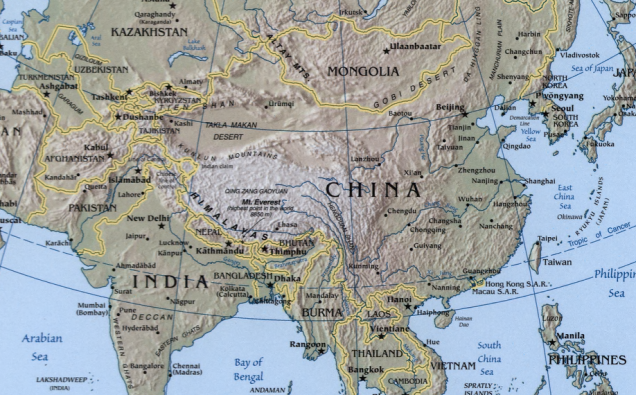
In the wake of months-long deterioration in Pakistan-Afghanistan relations over allegations of failure to stem the two-way cross-border terrorism, China has stepped in with shuttle diplomacy to help the two neighbors focus on cooperation.
Chinese Foreign Minister Wang Yi visited Kabul and Islamabad last week as part of the shuttle diplomacy to bring two bitterly divided neighbors on one platform against security threats.
The development also times with President Donald Trump’s review of the U.S. Afghan policy, which is reportedly nearing its completion, and is likely to raise stakes in Washington’s military course in the conflict-hit Afghanistan, which it invaded after 9/11 terror attacks.
Beijing’s mediation concluded with a bilateral crisis management mechanism deal with the aim to keep communication open during crises as well as help them resolve the contentious situations through dialogue.
Significantly, China, Afghanistan and Pakistan also agreed to establish a trilateral foreign ministers’ dialogue forum, which will give Beijing a direct larger say in the terrorism-hit region, where it is investing billions of dollars to lay a network of infrastructure for trade and energy supplies.
“Afghanistan and Pakistan agree to establish a crisis management mechanism. … The Chinese side will support this mechanism,” said the declaration in which Islamabad and Kabul also committed to “shared security”, in addition to pledging to jointly confront security challenges, according to Pakistani Dawn newspaper.
Pakistan and Afghanistan will bilaterally negotiate the terms of reference and other details for the mechanism, which will seek to address mistrust between the often uneasy neighbors.
“The key for Pakistan and Afghanistan is to have detailed consultations on how this mechanism would function and reach an agreement on the operability of this mechanism,” the Chinese foreign minister said, while hailing the Pak-Afghan agreement on bilateral mechanism as “an important step”.
Pakistan’s top foreign affairs adviser Sartaj Aziz described the development as a “very important initiative on behalf of China.”
Meanwhile, in a report The Washington Post on Friday noted the initiative seems to be successful in the face of fractured relationship between Pakistan and Afghanistan.
The Post particularly notes that Wang praised Pakistan’s “vital role” to bring peace and stability to the region, and a spokesman for his office declared that Pakistan has been “at the front line of the counterterrorism fight.”
China is investing more than $ 50 billion dollars in China Pakistan Economic Corridor to ramp up its access to the Gulf region for trade and energy supplies. At the same time Beijing faces the challenge of insecurity and instability in Pakistan-Afghanistan relations.
Here is how the Post sees the Chinese initiative in a report which said Islamabad is increasingly turning to Beijing as relations with the United States suffer on account of several factors including fast-expanding US-India relations:
“But so far, China’s foray into the mistrustful thicket of Afghan-Pakistani relations appears to have been low-key and helpful. It previously helped advance proposals by Pakistan to arrange peace talks between the Afghan government and the Taliban, though they eventually foundered, and it is now undertaking some shuttle diplomacy between the two capitals.
“Wang’s recent visits to Kabul and Islamabad led to three-way statements calling for greater cooperation on a variety of topics, a crisis mechanism to avert confrontations, a three-way dialogue among the countries’ foreign ministers, and a revival of the Quadrilateral Coordination Group that originally tried to arrange the Taliban peace talks.
“Given the terse and angry tone of recent exchanges between Afghan and Pakistani officials, such small steps and bland language sound almost like a diplomatic coup.”
















